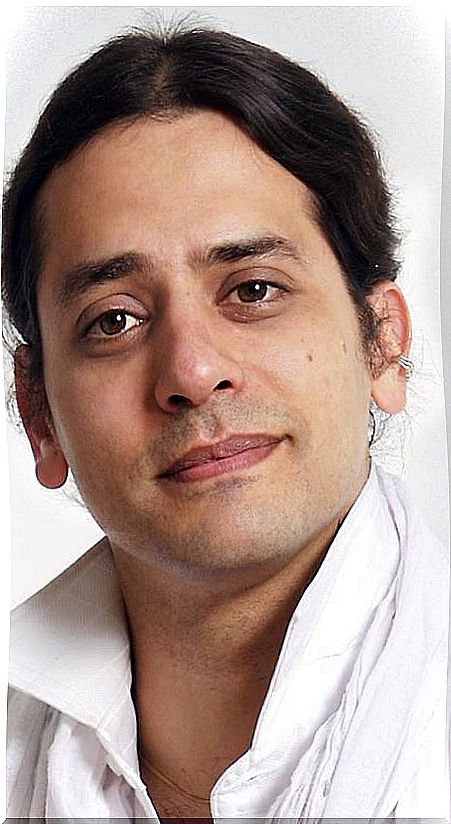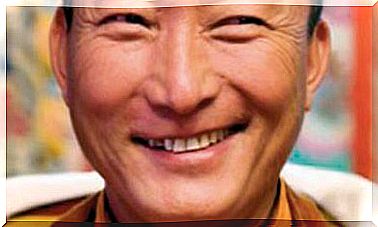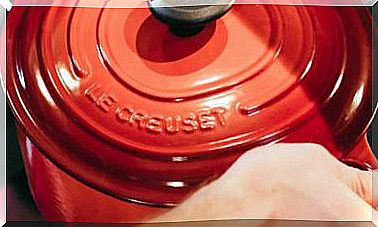“Enthusiasm Is The Best Fertilizer For Our Brain”
Musician, composer, luthier, journalist and educational consultant, he is the author of the book “I never went to school”, which shakes topics about education and learning.

His father, Arno Stern, is one of the world specialists in children’s drawing, discoverer of the theory of formulation : the free and spontaneous strokes that, under certain conditions of respect, children and adults make, are an expression of the organic memory of the species; drawing them helps us to recognize and affirm our own unique and singular existence.
Arno’s ideas, the result of the observation of thousands of people for more than sixty years, materialized in Le Closlieu (The Closed Place), a space for the regeneration of spontaneity opened in Paris in the late 1950s. This is the context where, in the 70s, André was born and grew up, without going to school and without ever being judged or compared with others. Here he will develop his particular life trajectory.
At 43, he has had the opportunity to practice different professions: dancer, guitarist, luthier, composer, journalist … He is a father of a family and, since the publication of his first book in 2009 (which is in its sixth edition in Germany) , lectures and advises organizations on the benefits of an education based on trust in people. His reflections can also be found on his website.
Interview with André Stern
Would you say that you have had a “normal” childhood?
People think I am special, they consider me an exception. But they are wrong. My life has been the most natural, like when you put an avocado seed in the water and it takes root. Nothing extraordinary. Any child in the same conditions would live with the same intensity.
You mean without going to school?
Many families could not afford it. That does not mean that children should stay home. My proposal is not home education. It’s more about not locking them up, getting them out of the ghetto, letting them open up to the world … I’m not against school, but if you offer me a perfect aquarium, just like the real sea, with all the details, I I prefer the ocean. In fact, when scientists placed a giant fish tank there, the fish began to swim in a square and, when they removed it, continued to do so.
So what are those conditions?
We all have a natural and spontaneous inclination to learning that I like to call native, indigenous, and endogenous. You can see it perfectly in a one and a half year old creature: the curiosity with which she opens herself to the world, her willingness to explore, to experiment … She is convinced that she is perfect and has infinite capacities and possibilities.
It is the stage of egocentricity.
Perhaps, but the important thing is that at a given moment, very soon, the child stops believing in himself, he begins to lose confidence. Why? I would say because he perceives in adults a very clear signal: “you are not perfect”, followed by another: “If you want to be, you must do what I tell you”. For example, if he cries, we try to silence him; if he moves too much, we tell him to be still; if it gets stained, you have to clean it … And since we are important to him, he ends up settling in, turns off the symptom, forgets what he really needs.
It must be painful … a
lot. The feeling of not being well, of not being “good” enough, activates the same circuits in the brain as those of very intense physical damage. To alleviate it, the child cannot change the opinion of others. The only option is to modify your own perception. This is the beginning of the end of an authentic being, connected with your needs.
The child stops believing in himself very soon because he perceives in adults a very clear signal: ‘you are not perfect’.
What happens when you are fully loved and accepted?
So he goes to school and there they ask him to stop playing to learn … It is a serious problem because in his head there is no difference between play, life and learning: for him, the three of them go together. Even in the worst circumstances, in situations of misery, war or even when they are very sick, children play. It is an innate need; and if we never interrupted them, they would play for hours, days, weeks …, concentrated and very serious, at the most complicated things. By stopping them, we are killing their natural inclination to learn.
They also teach educational games …
Directed activities are useless. The game must be spontaneous, starting from the child’s desire, not from obligation or duty. Here’s an example: my three-year-old son Antonin wants to run the lawnmower. His intention is not to pretend that he does it, but to actually live it. To do this, he is able to stand on tiptoe and run for 30 minutes behind a powerful and noisy device, much larger than himself. But it would be useless to try to stop him, because his whole being wants to drive that machine; it is a very strong impulse that comes from within. If I tell him, “Antonin, you must learn to mow the lawn” and show him how to do it, then all he has left is the effort.
And have you never been discouraged?
No, because he is excited about the slicer – that’s the ingredient that gives him wings and pushes him to overcome all his limitations. It is what makes the difference between a person who is really skilled in an activity and another who is less so.
The enthusiasm.
Exactly. A few years ago, neurobiologists discovered that due to the proliferation of electronic games, the region of the brain responsible for thumb movements is much more developed in young people today than it was 40 years ago. They thought they could create specific workouts to empower other areas in the same way. But that does not work, because our brain develops exclusively where we use it with enthusiasm. If we analyze the chemical process, enthusiasm would be like a kind of compost: when we become passionate about something, our emotional centers are activated and dump a storm of neurotransmitter substances in the neurons. In the brain of a child of two or three years a storm of enthusiasm is observed every three minutes; in that of an adult, only about three or four times a year …
In other words, their interests are changing …
They emerge and disappear at random from encounters or as a result of imperative needs. It is impossible to control them.
A storm of enthusiasm is observed in the brain of a two-year-old child every three minutes; in that of an adult, only three a year.
Is this how you learned as a child? Just playing and getting excited?
This is how I assimilated everything I know. For example, building cars with Lego I acquired fundamental mathematical concepts such as the number pi, notions of aerodynamics, to calculate the friction of the wheels on the road … I discovered the history of the fastest car in the world and that the relationship between distance and duration equals speed. And I’m still doing it. I can’t differentiate play from learning, that’s why I still consider myself a child.
There were also some teachers …
It’s true. Throughout my life, I have had the opportunity to learn together with other people: a copper craftsman, a luthier, a photographer, my own father … However, I see them more as traveling companions, with whom I shared an enthusiasm , than as “teachers” in the conventional academic sense. They all contributed many things to me, they put their knowledge at my disposal, but they never imposed it on me. I remember the first thing that Werni, the master luthier, told me when I entered his workshop: “I cannot teach you this profession, I can only show you”.
Organic learning like the one you describe, isn’t it a bit chaotic?
Maybe you see it that way because it means turning around what we are used to. In general, we seek success and competition, we want our children to earn diplomas and become great professionals. But these are side effects of enthusiasm. When you live a passion, when you are sincerely interested in something, you become a magnet, you magnetize information and opportunities, the world conspires with you. You are like the pregnant woman who sees “bellies” everywhere, or the lover who constantly hears the name of his beloved. For me the first thing is enthusiasm. The rest comes alone.
I never went to school
“Hi, my name is André, I’m a boy, I don’t like sweets and I don’t go to school.” This is how little Stern used to present himself, growing up without a curriculum, without programs or schedules, without exams or homework.
More than a criticism of the school, the work is a hymn to the freedom and diversity of human beings, a call to trust in the innate capacities of children.









